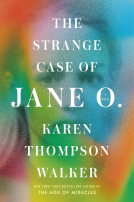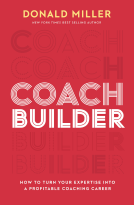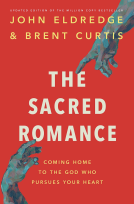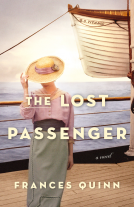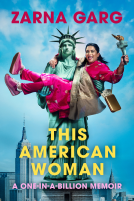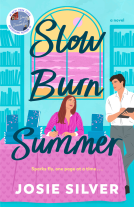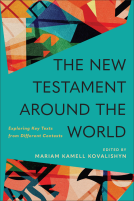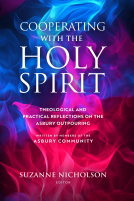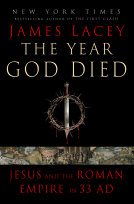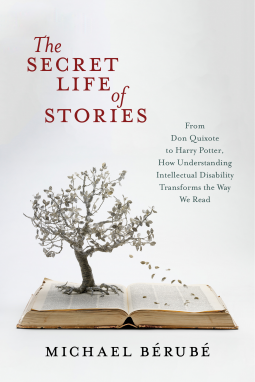
The Secret Life of Stories
From Don Quixote to Harry Potter, How Understanding Intellectual Disability Transforms the Way We Read
by Michael Bérubé
This title was previously available on NetGalley and is now archived.
Send NetGalley books directly to your Kindle or Kindle app
1
To read on a Kindle or Kindle app, please add kindle@netgalley.com as an approved email address to receive files in your Amazon account. Click here for step-by-step instructions.
2
Also find your Kindle email address within your Amazon account, and enter it here.
Pub Date Feb 02 2016 | Archive Date Feb 18 2016
Description
How an understanding of intellectual disability transforms the pleasures of reading
Narrative informs everything we think, do, plan, remember, and imagine. We tell stories and we listen to stories, gauging their “well-formedness” within a couple of years of learning to walk and talk. Some argue that the capacity to understand narrative is innate to our species; others claim that while that might be so, the invention of writing then re-wired our brains.
In The Secret Life of Stories, Michael Bérubé tells a dramatically different tale, in a compelling account of how an understanding of intellectual disability can transform our understanding of narrative. Instead of focusing on characters with disabilities, he shows how ideas about intellectual disability inform an astonishingly wide array of narrative strategies, providing a new and startling way of thinking through questions of time, self-reflexivity, and motive in the experience of reading. Interweaving his own stories with readings of such texts as Faulkner’s The Sound and the Fury, Haddon’s The Curious Incident of the Dog in the Night-Time, Kingston’s The Woman Warrior, and Philip K. Dick’s Martian Time-Slip, Bérubé puts his theory into practice, stretching the purview of the study of literature and the role of disability studies within it.
Armed only with the tools of close reading, Bérubé demonstrates the immensely generative possibilities in the ways disability is deployed within fiction, finding in them powerful meditations on what it means to be a social being, a sentient creature with an awareness of mortality and causality—and sentience itself. Persuasive and witty, Michael Bérubé engages Harry Potter fans and scholars of literature alike. For all readers, The Secret Life of Stories will fundamentally change the way we think about the way we read.
Advance Praise
"[A] concise, fresh, and deeply informed look at how we read."--STARRED Kirkus
Available Editions
| EDITION | Other Format |
| ISBN | 9781479823611 |
| PRICE | $89.00 (USD) |
Links
Average rating from 12 members
Featured Reviews
 David W, Media/Journalist
David W, Media/Journalist
One of the rewards of committing to read and review two or three new nonfiction books a week is that it forces me to expand my range. There is a continual flow of books I would not normally consider buying or reading. Whole categories of them. But my reading has led to all kinds of discoveries for me, and some of them light a fire for more. Here for example is a totally engaging book that demonstrates the very real power of the disabled (both physically and intellectually), both as characters in fiction and in their appreciation and interpretation of it. It’s an approach that has its own universe of scholarship, and this particular book is an intriguing eye opener of an introduction to its massive scope.
The Secret Life of Stories has just three chapters: Motive, Time, and Self-Awareness. Each looks at an aspect of fiction from two angles: how a disabled character affects the work, and how a disabled reader or character sees that work. In particular, Self-Awareness is a fractal, recursive vortex of possibilities, as Bérubé examines how disabled characters do or do not, can or can not see themselves in their own narrative.
He perceives that writers use the disabled to expand literary possibilities by an order of magnitude. Normal rules don’t apply to the disabled. Relationships go off the track and don’t ever have to come to a stop. The disabled’s special powers and deep and different perceptions, free the author to go way outside the box of standard narrative. In examples from Don Quixote and Robinson Crusoe to Martian Time-Slip and the cult films Galaxy Quest and Memento, mind twisting events all start with the disabled.
Bérubé has a nice, light touch. But he also has an academic’s unfortunate tendency to replace perfectly adequate English words with clinical equivalents. This slows the read while adding little value. So the book moves easily, but hits moguls all over.
Bérubé calls it “a short and sharp book, delineating a few of the most important and engaging uses of intellectual disability in fiction” and he delivers solidly. Then unaccountably, and having almost nothing to do with intellectual disability, his Conclusion bashes the literature of the field. It’s so inconsistent with the chapters, it appears to belong in some other book. It ties together nothing he has painstakingly demonstrated.
I was rather hoping he would postulate a new literary discipline born of intellectual disability, or a breakthrough insight for psychology, or new literary categories to make them stand out. But no such luck. If you leave off after the three chapters, you will be mightily impressed.
David Wineberg
 Reviewer 203820
Reviewer 203820
Michael Berube draws comparisons between the way stories are narrated – something mankind has always done – and the way we perceive the world and think. The capacity of understanding narrative is sometimes argued to be the decisive difference between human beings and other species, but Berube shows that we have to extend or understanding of intellect at this point.
What I really appreciated in this highly demanding book was Berube’s very personal approach to the topic. He manages to convey his ideas to readers who are not totally immersed in the topic by providing his personal experiences and drawing parallels that everyone can easily follow. By using many popular novels with which many readers should be familiar, he provides access to his theory and thus expands our understanding of disabilities and the way they are portrayed in fiction and film. I am sure that after reading this book, I am now much more sensitive to how people with disabilities are depicted and take a closer look at the stereotypes used.
Readers who liked this book also liked:
Karen Thompson Walker
General Fiction (Adult), Literary Fiction, Sci Fi & Fantasy
Robin Soans, Claudia Roden
Cooking, Food & Wine, Nonfiction (Adult), Travel
Rev. Dr. Suzanne Nicholson
Christian, Nonfiction (Adult), Religion & Spirituality
Jodi Picoult; Jennifer Finney Boylan
General Fiction (Adult), Literary Fiction, Women's Fiction
